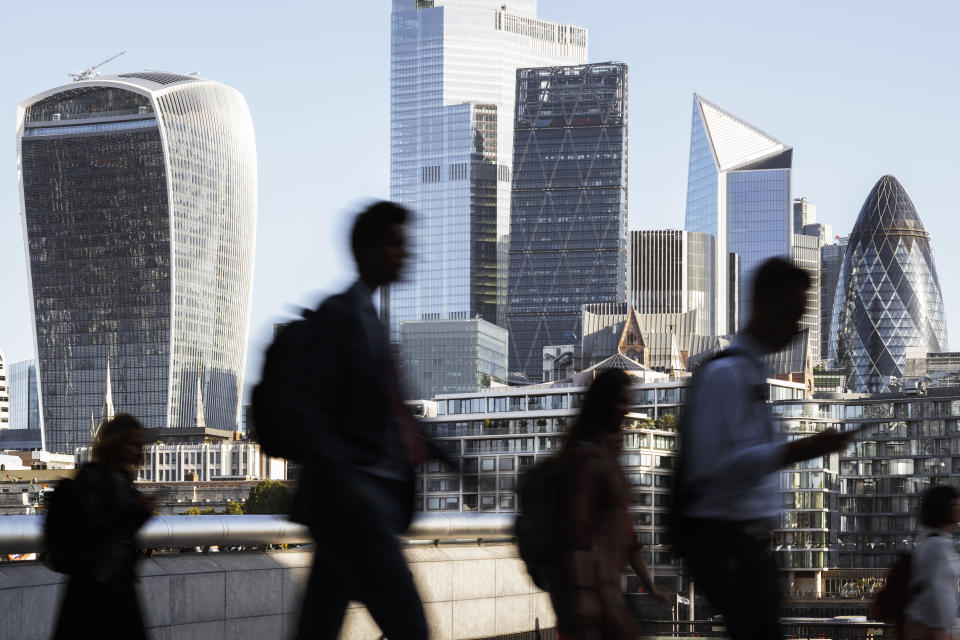Coronavirus: UK economy won't recover to pre-pandemic levels 'until mid-2023'

The UK’s gross domestic product (GDP) growth expectations have been revised down for 2021, despite optimism for next quarter.
EY Item Club in its autumn forecast published on Monday said it expects the UK economy will grow 6% in 2021, down from the 6.5% it previously anticipated.
This would mean the economy won’t return to its fourth-quarter 2019 size until mid-2023.
The prediction is based on the assumption that the UK and EU will avoid a no-deal Brexit by the end of 2020, despite current tensions, and that it will come to a “bare-bones free trade agreement.”
It also assumes that COVID-19 will be less of an aggravating factor on the economy later on in 2021, if a vaccine becomes widely available. The report said it currently looks unlikely that this will occur in the first half at least.
EY has also revised its forecast for UK GDP contraction in 2020, predicting it will shrink by 10.1% rather than the original 11.5% fall anticipated in its July report.
The expectation for a smaller drop in GDP is because of a stronger bounceback in the third quarter amid “substantially reduced lockdown restrictions.”
The UK’s GDP saw a record quarterly contraction of 19.8% in April, as effects of COVID-19 induced lockdowns began to bite.
Watch: What is a recession?
READ MORE: Bank of England asks banks how ready they are for negative interest rates
EY believes UK GDP grew about 17% quarter on quarter in Q3 this year, a stronger rebound than the 12% forecast in its summer report.
The rebound was supported by the release of pent-up demand caused by lockdowns in retail and hospitality. A temporary VAT cut for hospitality and the Eat Out to Help Out scheme also propped up consumer spending.
In addition, the housing sector saw a marked pick-up in activity, supported by a temporary raising of the stamp duty threshold. However, business investment remained weak in Q3.
“Government intervention continues to provide much-needed support but, even with this boost, many of the factors that supported the pick-up in growth in Q3 are now beginning to fade, notably the release of pent up demand and relaxation of lockdown restrictions,” said Howard Archer, chief economic adviser to the EY Item Club.
Work is continuing to ensure Britain’s recovery from the economic stress wrought by COVID-19. The Bank of England (BOE) has written to banks on Monday to see how ready they are for zero or negative interest rates.
In the letter, deputy BOE governor Sam Woods said the central bank is “requesting specific information about your firm’s current readiness to deal with a zero Bank Rate, a negative Bank Rate, or a tiered system of reserves remuneration – and the steps that you would need to take to prepare for the implementation of these."
READ MORE: Nobel Economics Prize winners 2020: Paul R. Milgrom and Robert B. Wilson
The Treasury also last week announced an extension to its Job Retention Scheme.
Chancellor Rishi Sunak said on Friday (9 October) his Job Support scheme would be expanded to offer targeted support to areas where businesses are ordered shut by the government. New, tougher local lockdowns are expected to be announced next week.
Under the extension, staff unable to work will be able to claim wages from the government in a similar manner to the furlough scheme. The government will pay two-thirds of wages, up to a maximum of £2,100 per month.
Watch: What is a V-shaped economic recovery?

 Yahoo Finance
Yahoo Finance 